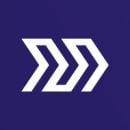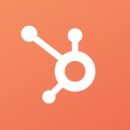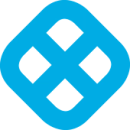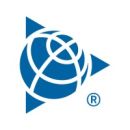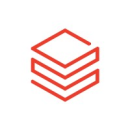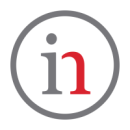Technologists care about many things when looking for their next employer, the tech stack they’ll be working with, the problems they’ll get to solve, but none of this matters if they don’t have a great team at their side.
We asked members of engineering organizations what attributes make their teams stand out and succeed. They also shared stories of their biggest accomplishments to give candidates an inside look at how they solve problems. Some credit being focused on the customer to their success, while others note collaboration or their team’s selflessness as their path to succeeding.
No matter what makes their team excel, candidates have a chance to see for themselves whether this is an engineering team they want to be a part of. Keep reading to get an inside look at what it’s like to work on these outstanding engineering teams, and yes, they are hiring.

Wendy Gwo, Software Engineering Manager, shares how the Marqeta engineering team bands together to solve tough challenges.
What trait, quality or value makes your engineering team successful?
“The willingness from every engineer to learn and stretch themselves beyond their current capabilities and to help their teammates out when their support is needed.”
How has your team worked together to solve a problem or overcome an obstacle?
“We were down a lead engineer and had two technically challenging projects to complete. Our team was nervous about the lack of a leader and whether or not they were technically capable enough to keep the projects moving forward. Even though I had every confidence that the team was capable, they completely blew my already high expectations out of the water. We jumped in, problem solved and tackled the complexity of the projects. In the end, we’ve all grown so much and increased our confidence as a result. I was so proud of my team.”
What is your team’s biggest accomplishment?
“My team drove a four-year long effort for unifying frontend apps to completion. It’s hard to keep projects going for years on end and its completion had a meaningful impact on our end users. It also helped make the application development experience better for our engineers.”
In what cities are you currently hiring for tech roles?
“Remote and in the Bay Area. Marqeta is flexible first, which means we support you working from anywhere and we have an office in Oakland that you can go and work at if you want to.”

Zoe Sobin, Senior Engineering Manager, Reporting, proves the HubSpot engineering team produces its best work when they keep the customer top of mind.
What trait, quality or value makes your engineering team successful?
“Being deeply customer centric. We believe that code that doesn’t provide value to customers or make HubSpot better isn’t worth writing. This means that engineers at HubSpot aren’t just strong technologists, they also develop their own understanding of the customer, the product and the business. This allows them to operate with high levels of ownership and autonomy, and also ensures that even highly technical decisions are made with the needs of the customer top of mind.”
How has your team worked together to solve a problem or overcome an obstacle?
“When the Black Lives Matter protests really took off in the summer of 2020, a handful of individuals on my team came together to find a way to better incorporate DI&B (Diversity, Inclusion and Belonging) conversations into our operating system. Those folks designed and implemented a monthly meeting where people could learn about and discuss a topic related to race and equity in the workplace. It was really amazing to see everyone come together to learn and push themselves out of their workplace comfort zones. We’re still running these meetings today and many other product groups have adopted it into their operating systems as well.”
What is your team’s biggest accomplishment?
“The biggest accomplishment we’ve had as a team has been consistently launching new products every year for the last five years at our annual conference, INBOUND. Reporting is an extremely important part of the HubSpot platform and we’ve been able to consistently innovate and deliver new value to meet the ever-evolving needs of our customers. There is a lot that goes into a product launch, and what makes me the most proud is that we’ve been able to balance delivering these new solutions with investing in our core infrastructure, and prioritizing scalability and reliability to reduce technical debt and help with future reporting innovation.”
In what cities are you currently hiring for tech roles?
“As a hybrid company, HubSpot allows employees to choose how they do their best work, whether that's remote, in office, or flex - a combination of the two. We are currently hiring for our Product, UX and Engineering teams in North America (both US and Canada) and in EMEA - primarily Ireland, Germany, UK, Spain, the Netherlands and Belgium.”
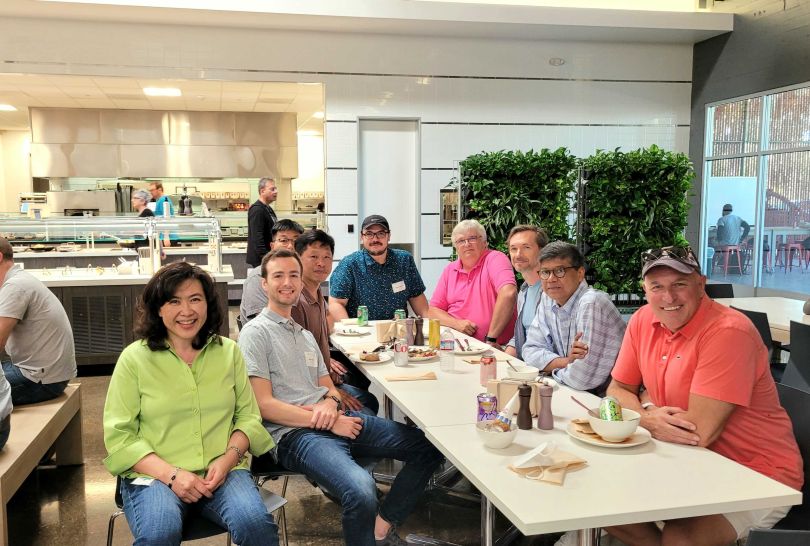
Gloria Lau, Senior Vice President of Engineering, details how being nimble is key for Owl Labs’ engineering team.
What trait, quality or value makes your engineering team successful?
“At Owl Labs, we build cutting-edge technology that powers deeply immersive collaborative experiences. One of the core principles of our engineering team is creating value for the customer and the company alike. We have a mission-oriented culture in engineering where we are focused on making the customer collaboration experience intuitive and frictionless. We are focused on building high quality, modular and reliable designs that meet and exceed our customers’ expectations.”
How has your team worked together to solve a problem or overcome an obstacle?
“At any company, remaining nimble is the key to success. On a few occasions, we have had to pivot to focus on different areas without impacting critical timelines of the high-priority products on our established roadmaps. The Owl Labs engineering team is flexible and they take on these disruptions with grit and hustle, allowing us to fix problems as well as successfully deliver on our business goals and objectives.”
What is your team’s biggest accomplishment?
“Launching physical products can be a challenge at any company. Recently, we released the latest generation of our award-winning product line, the Meeting Owl 3, now paired with an Expansion Mic. We launched this successfully and on schedule, which was a massive accomplishment for our engineering teams and all teams within the entire company.”
In what cities are you currently hiring for tech roles?
“We support a hybrid workplace to the fullest extent. We have hired engineers in Palo Alto, Los Angeles, Boston and many other cities across the US. Currently, we are hiring for a security expert, among a few other engineering roles. For more information on why you should join our team, check out: https://owllabs.com/pages/careers.”

Nick Durkin, Field CTO, discusses how moving away from the fear of failure has led the Harness’ engineering team to greatness.
What trait, quality or value makes your engineering team successful?
“I strive to create an environment for our engineering team that encourages diversity of thought — where all ideas and suggestions are welcome. A lot of teams will talk about being open to new ideas, but they don’t act on them due to the fear of failure. At Harness, we are constantly A/B testing and using data to evaluate ideas that come up, regardless of knowing if it will fail or not. We are conditioned as humans to feel terrified of failure, but I believe you have to remove the fear of failure completely in order to succeed, and we put that philosophy into practice at Harness.”
How has your team worked together to solve a problem or overcome an obstacle?
“One of the biggest problems an engineering team faces is a software outage. We experienced our biggest outage after making a mistake in the way we delivered a new feature to our customers. We didn’t follow a typical deployment path, which made it difficult to roll back the deployment and get to the root problem. It was certainly stressful at the moment, but ultimately this mistake led to a new and popular feature of the Harness platform called Feature Flags. In the process of diagnosing and fixing this problem, we became really good at deploying our software, and developed best practices that we share with our customers. But to get there, we had to have a culture that promotes honesty and vulnerability so that we could work together to solve the issue.”
What is your team’s biggest accomplishment?
“When talking about accomplishments, most people will discuss their groundbreaking product or the company’s successes, but I believe the quality and strength of our team is our biggest accomplishment, and the most rewarding part of the job. Talent is competitive and the fact that we’ve been able to retain some of the most amazing and talented tech professionals in the game is significant. Many companies promote leaders from within, but that doesn’t mean they have equipped those folks with the skills they need to be successful and that can lead to culture and retention issues. At Harness, technical skills aren’t everything, we also support the development of soft skills to help our employees grow into capable leaders. It’s been incredible watching our leaders train others to be leaders and I can honestly say it’s our biggest accomplishment.”
In what cities are you currently hiring for tech roles?
“We’re currently hiring for remote and hybrid positions in the following areas: Boston, Belfast, Belgrade, Bangalore, Brazil and the Bay Area (we like to call it the Big Six). We’re also always looking for global candidates — if and when we find talent outside of one of these areas, we find a way to acquire that talent and make it work regardless.”
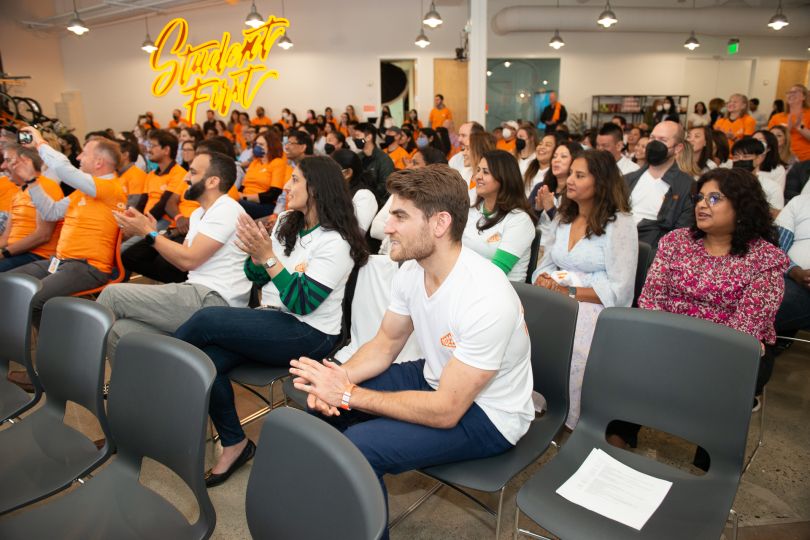
Ben Tucker, VP of Engineering, credits teamwork as the reason the Chegg engineering team is so successful in meeting students' needs.
What trait, quality or value makes your engineering team successful?
“A key trait for successful engineering teams is the need to have a clear understanding of the objectives you’re trying to achieve as a company or team, and to focus on achieving them. Our engineers at Chegg work alongside product managers and UX designers on cross functional teams that we call “squads,” which we currently have 60 of. They follow a process that is inherently iterative: defining the product, designing it, building it and then learning from how students use what we created.
“At any one time, these squads are all in various phases of their own development. Each member of the squad needs to know what their role is and how their work impacts the strategic objectives. In addition, the team also needs to understand things outside their own areas to be able to grasp how their piece fits into the bigger picture. That’s a key responsibility for each layer of leadership: to ensure that the teams you lead have alignment with each other and to make sure they’re self-aware of their own development through those phases.”
How has your team worked together to solve a problem or overcome an obstacle?
“Whether we’re building software experiences to help a student know what to study or we’re deep in our systems diagnosing why a container is taking too long to boot up, solving problems is the heart of what our teams show up to do. We’ve learned the solutions we build are only as strong as our teams’ ability to support them for the long-term. That means that it can’t be individual engineers solving individual problems—it’s all about squads that can come together and become greater than the sum of their parts.”
What is your team’s biggest accomplishment?
“Just over a year ago we launched ‘Learn With Chegg’ which is a whole new architecture for our platform centered on the needs of the modern student. In order for students to get the most from Chegg we needed to evolve into being personalized in the help we provide students around the globe. Engineering was a large part of that launch and company wide shift. It was a unified experience, not aligned in terms of how we think about product business units, but in the minds of students. ‘Learn With Chegg’ marked the beginning of a journey we continue on today as we look to solve even more problems students have.”
In what cities are you currently hiring for tech roles?
“Chegg is hiring and all tech/engineering roles are remote. In North America, Chegg has offices in Portland, Edmonton, Santa Clara and New York, and further offices across the globe in India, Israel, London and Madrid.”

Jeff Pierce, Senior Vice President Of Engineering, shares how unifying Appfire’s global engineering team is a pillar to its success.
What trait, quality or value makes your engineering team successful?
“Appfire has fostered a culture of continuous learning and sharing to avoid knowledge silos throughout the organization. We then apply that knowledge to make our teams more efficient. We continually strive for quality while building strong foundations for our products and constantly ask questions around “why.” We also leverage tools and use the most advanced techniques to help us be more efficient and ship more frequently. It’s about having the ability to prioritize and transform as our company and strategy evolve, while also placing a continued emphasis on security.”
How has your team worked together to solve a problem or overcome an obstacle?
“Having a large team with such breadth of experience building apps for the Atlassian ecosystem has enabled us to react quickly when needed and apply that knowledge while sharing technical solutions. As a global company, organized collaboration is critical to tackling obstacles. Recently, our leaders and teams are traveling more often to engineering hubs to make sure that even though we're global, we truly are a unified team. When new issues arise, we are able to solve the problems as a team and then share the solutions across many of our apps.”
What is your team’s biggest accomplishment?
“Our engineering organization has been able to maintain and provide customer support for 200+ apps in the Atlassian Marketplace and beyond, using many different tech stacks and programming languages. We have also been able to successfully integrate a global team across 20+ countries — which continues to expand through organic growth and acquisitions — into a single, effective engineering team.”
In what cities are you currently hiring for tech roles?
“Appfire is a remote-first company and we are constantly on the lookout for amazing technical talent worldwide, with 60 current tech roles open globally. We are made up of diverse teams across global locations, including India, Poland, Switzerland, Bulgaria, Spain, Turkey and more. We invite you to learn about our open positions and join us.”

Lisa Friedman, Sr. Engineering Manager, Core Applications, believes a mission-first mentality lead to a great engineering team at Color.
What trait, quality or value makes your engineering team successful?
“The team is made up of a group of engineers that value teamwork and collaboration. At Color, we believe healthcare delivery should be designed to increase access for everyone, everywhere. The work we do has a direct impact on people's health – passion for that kind of work attracts engineers who are motivated to collaborate with and help their teammates succeed daily.”
How has your team worked together to solve a problem or overcome an obstacle?
“Since the release of the first Covid-19 vaccine at the end of 2020, the FDA and the CDC have authorized and recommended numerous advancements in Covid-19 vaccination frequency and eligibility to protect the public. Our team worked together to ensure that eligible patients can register and access the right formulation of the vaccine they need at vaccination sites with supply in their communities. Each time a new vaccine product is recommended, eligibility for doses change, or a new dose schedule is recommended, and our team modifies our vaccination product to support the new recommendations.
“As the number of vaccine products increased and the complexity of the rules and recommendations increased, the code complexity became harder to manage and updating our product to support the new rules became increasingly difficult. To solve this problem, the team brainstormed solutions and decided to invest in refactoring our code base to replace the complex logic with a well defined centralized service eligibility rules engine. This keeps all the rules in one place, allows for auditing of the rules by the Scientific/Medical affairs team and enables the team to respond to CDC recommendations within 24 hours of a new recommendation. This solution and the investment in the implementation has paid off as it now supports other vaccines.”
What is your team’s biggest accomplishment?
“The Color engineering team continues to meet the ever evolving healthcare needs that arose out of the Covid-19 pandemic and the vaccines team played a key role in this journey, building a first-in-class vaccine clinical management (VCM) platform. This platform allows organizations to quickly set up vaccination sites, manage vaccine inventory, schedule available appointments, pre-register patients and manage the patient experience at vaccination sites, including check-in, vaccination administration recording, reporting to public health immunization information systems and subsequent billing.
“In building a product to support vaccine administration and clinics, we prioritized patient accessibility, ensuring patients were directed to vaccination sites with supply and appointments available. Through this experience, Color has delivered over 1.8 million Covid-19 vaccinations. The team has now expanded the platform to support flu vaccinations, as well as all CDC-recommended vaccinations, which includes MPOX.”
In what cities are you currently hiring for tech roles?
“All of the open engineering roles at Color are eligible for full-time remote work, with the option of a hybrid working model in our Bay Area offices.”
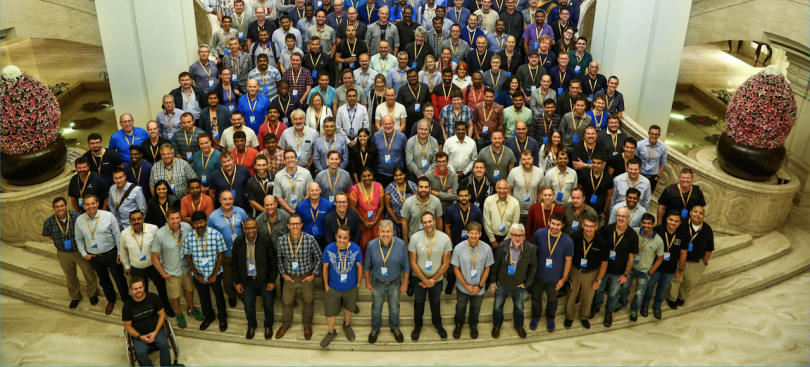
Stuart Riley, Vice President, GNSS Technology, talks about how collaboration is critical for the Trimble engineering teams.
What trait, quality or value makes your engineering team successful?
“Hardware development requires multiple disciplines (electronic, software, mechanical, QA, compliance, etc.) Our products also require specialized disciplines to produce centimeter-level positions in real-time using Global Navigation Satellite System (GNSS). To be successful in building products that work reliably in harsh environments, we need a clear description of problems and requirements so that the team can work toward a common goal. We need highly skilled engineers who can also understand how their component impacts the overall product and work collaboratively with engineers from other disciplines to create the optimal solution to a problem.
“In addition to engineering teams focused on hardware, Trimble also has large software teams that develop software packages and cloud solutions for the construction, transportation, agriculture and geospatial markets.These include on-machine software for heavy equipment, construction project management, Mechanical, Electrical and Plumbing (MEP), architecture, 3D modeling, Building Information Modeling (BIM), mapping and data collection, utilities, fleet management, autonomy and more.”
How has your team worked together to solve a problem or overcome an obstacle?
“The supply chain has presented challenges over the last few years. For example, one product required a change to a new family of CPU is a task that usually takes a significant time to implement. We created a cross-discipline team working at different sites to update the product. Software and hardware teams worked very closely together to design a PCB and, in parallel, use development kits to port the software to the new platform. The driver and application software layers were developed in different timezones. This allowed issues to be handed off at the end of the work day, with resolution often becoming available the following morning.”
What is your team’s biggest accomplishment?
“Trimble was the first company to commercialize Global Positioning System (GPS) technology in the early 80s. Our history with GPS, and more broadly GNSS, has progressed from a technology only a few people had heard of to one of our most widely used innovations throughout the world. Early Trimble devices were large (about 50 lbs), required a lot of power (the size of a car battery), and could only deliver centimeter positioning after data was post-processed.
“Our modern products have a very small factor and power requirement; they deliver centimeter-level accuracy in real-time for innovative applications in construction, agriculture and geospatial markets. This transformative technology enables our customers to increase productivity, reduce rework and accelerate sustainability at scale.”
In what cities are you currently hiring for tech roles?
“Trimble is a worldwide company with engineering and technical roles across the globe serving a variety of industries such as construction, agriculture, geospatial and transportation. The best place to see where we are hiring in cities where we have a physical presence or remote locations, visit our careers section on trimble.com.”
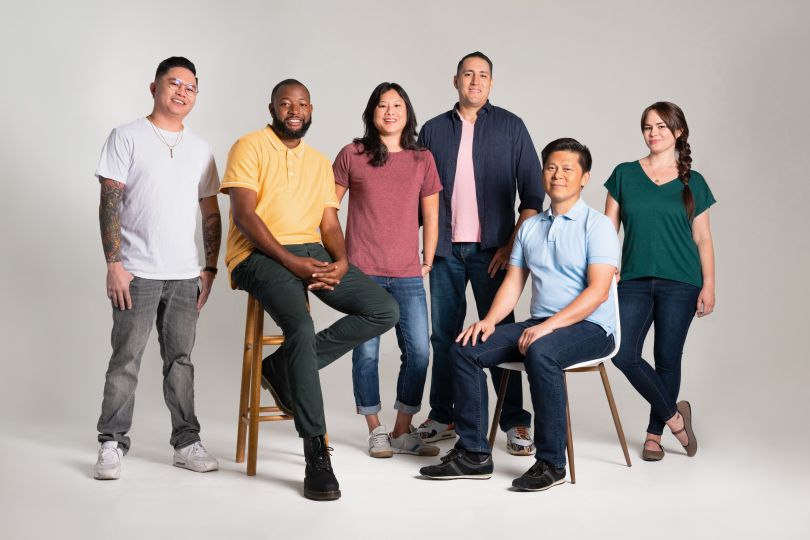
Michael Tucker, Vice President, Engineering, tells us how remaining aligned despite quick growth didn’t stop the GoDaddy engineering team from succeeding.
What trait, quality or value makes your engineering team successful?
“There are a multitude of qualities that make an engineering team successful. It starts with a diversity of talent across personal backgrounds, skill sets and seniority. A diverse team brings something to the table for every occasion, with empathetic customer views, battle-earned wisdom, enthusiasm for new challenges and a breadth of experience to apply to any challenge. Next, the efficacy of a team depends on engineering maturity and rigor to deliver value reliably with performance, availability and quality as fundamental building blocks. Finally, but equally important, are bias to action and passionate customer focus, with the unrelenting goal to iteratively deliver value to your users.”
How has your team worked together to solve a problem or overcome an obstacle?
“Our engineering teams across GoDaddy Commerce have collaborated closely to build a cohesive and powerful suite of commerce capabilities. We join forces to define best practices and patterns, and support each other in implementing and improving them, to ensure high quality deliverables and scalable, maintainable systems. We hold weekly forum meetings to share challenges, wins and other applicable information to help keep our many teams aligned. We maintain a culture of partnership and collaboration, lending a hand across product and team boundaries, as needed, to help ensure our common objectives stay on track.”
What is your team’s biggest accomplishment?
“We have grown from a small and scrappy team that offers a site builder for selling physical products to a discrete division of GoDaddy that offers tools and applications for selling physical and digital goods, services and events, whether on a website, marketplaces, social channels, or in person, via point of sale devices, mobile applications or online transactions. This growth came both organically and through acquisitions, and increased our organizational size by magnitudes in just a few years, but we have maintained our human-first culture and our passion to level the playing field for small businesses and independent entrepreneurs to compete and thrive against the goliaths of the industry. Our omni-commerce products represent the culmination of effort across dozens of teams to bring together previously disparate capabilities, and we continue to evolve and improve these offerings toward an extensible and open platform.”
In what cities are you currently hiring for tech roles?
“We are hiring globally, across the US, Latin America, India and Serbia. We support fully remote and hybrid work, with multiple office locations across these regions.”

Moksha Adyanthaya, SVP of Product Engineering, says a helping attitude is how the TuneIn engineering team solves tough problems.
What trait, quality or value makes your engineering team successful?
“It's hard to pick just one. There's so much that I love about the engineering culture here. I think the one that stands out for me is that everybody seems to be willing to go above and beyond to help each other. We cross lines quite a bit because at the end of the day we're all engineers, even though some folks' title may say web engineer or some may say platform. We're always ready and willing to step into each other's shoes to solve problems together. We all want to meet a common goal. This is special in my point of view because at other companies’ many engineer teams don’t cross lines. In addition, we have a very open culture about being able to see codes of other teams at the company. We share GitHub reports, for example. There's no egos here and we have a really open engineering culture.”
How has your team worked together to solve a problem or overcome an obstacle?
“We are a very collaborative company overall and even though we have a security org and an operations org, a platform org and a client engineering org, we know that one team can't actually work well without the other, especially when it comes to problem-solving. A recent example of this was when users were experiencing skip back issues when they were listening to NFL games on TuneIn. The bug was reported to a client engineering org because that's where the user first experienced the issue. Even though they researched the bug, our streaming team was the one to solve the issue. It took a lot of cross-team collaboration in order to solve the problem, but we eventually did. One team could not have solved the issue without the other. This is something that I pretty much see on a day-to-day basis, especially with hard problems. I believe that our core value of collaboration helps us function best and overcome obstacles everyday here at TuneIn.”
What is your team’s biggest accomplishment?
“We're solving really hard problems at TuneIn. I'm really proud of the team's organization and that we are all willing to just roll up our sleeves to tackle very hard problems together in real time. We are breaking our monolith into microservices which is the industry standard of where modern code bases are going. There is still some work to be done, but I know with our can-do attitude we’ll bring our code into the future which is a major accomplishment in itself.”
In what cities are you currently hiring for tech roles?
“We’re open to hiring good people regardless of their location for tech roles.”

Arturo Campos-Rodríguez, Software Engineer, states that open communication from all members of the Gecko Robotics engineering team helps them operate at their best.
What trait, quality or value makes your engineering team successful?
“We’ve prioritized creating a high-trust environment where everyone on the team, regardless of experience or tenure, can voice their thoughts honestly. As a result, we have more ideas to solve complex, real-world problems. We rely on open communication to build trust and respect while moving quickly and effectively towards a unified goal. Our commitment to making each other better while mastering failure has attracted incredibly smart and talented engineers. Our software team is led by Rick Ducott, who launched the Palantir software engineering team in London. I love working alongside an industry leader with deep experience in creating the software of the future, and have learned firsthand what's involved in building world-class software.”
How has your team worked together to solve a problem or overcome an obstacle?
“At Gecko Robotics, we work with leaders in power, oil & gas, manufacturing and defense to help them understand, operate and protect their most critical physical assets. We were recently asked to re-architect our data pipeline to accommodate an order-of-magnitude increase in scale. This required us to work collaboratively with our robotics team, gather feedback, evolve quickly and drive clarity on new technical and UX challenges. Bringing together different perspectives and creating a space where everyone felt comfortable jumping in and voicing their ideas added tremendous value and agility to our team as we worked through this project.”
What is your team’s biggest accomplishment?
“Right now, electric utilities are facing a steep challenge: they’re being asked to manage the transition to clean energy, while keeping power reliable and affordable in the face of rising demand, and to do this with an aging fleet of assets bumping up against their planned end-of-life. Our solutions are helping them manage this complex landscape.
“Recently, our team worked with decision makers to understand how the condition of individual assets—boilers, tanks, pressure vessels, etc.—contributes to their fleet-wide performance and reliability. Over the course of a few weeks, our team developed software applications that aggregate data across several assets and sites to create intuitive map-based dashboards that provide fleet managers a more holistic understanding of their assets. Using this software, customers can access actionable insights to answer one of their most pressing questions: How do we get the most out of the infrastructure we have?”
In what cities are you currently hiring for tech roles?
“Boston, New York, Pittsburgh”
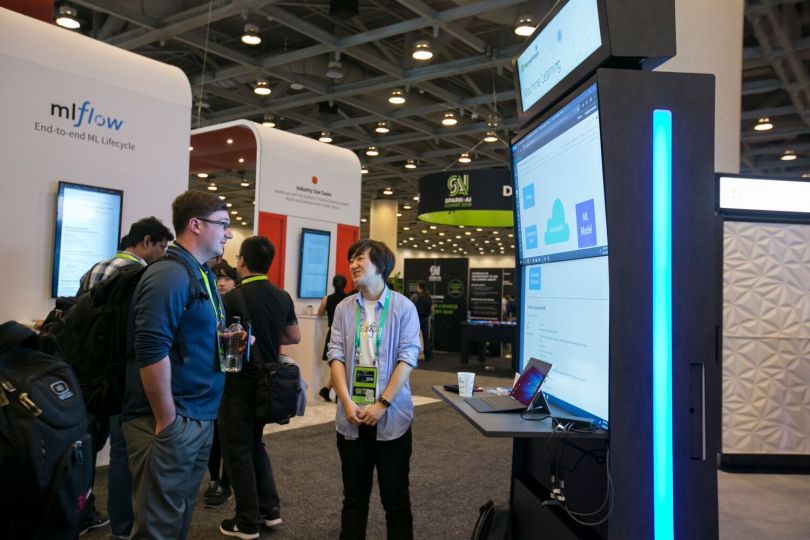
Zaheera Valani, Sr Director of Engineering and Site Lead for Seattle, notes how the Databricks’ engineering team follows five key principles to successfully meet its audiences’ needs.
What trait, quality or value makes your engineering team successful?
“At Databricks, we’ve codified the five key ingredients that an engineering team needs to be successful. These five tenants were put together by our founders after years of building and leading engineering teams and seeing firsthand what makes a team successful. These components include vision and mission, execution and delivery, technical leadership, product management and people management. We periodically assess these five ingredients across teams since they may change depending on priorities.”
How has your team worked together to solve a problem or overcome an obstacle?
“The modern data stack is vast - there are a lot of data and AI tools on the market that customers can benefit from. The issue with this is that data is often siloed between the platforms and applications used for data engineering, analytics, data science and machine learning. To remedy this, the Databricks Lakehouse helps unify data warehouses and AI use cases on one platform. This unified approach simplifies our customers’ data stacks by eliminating these data silos that traditionally separate and complicate these use cases.
“One of the challenges my team has focused on is opening and extending the Databricks Lakehouse ecosystem to make it easier for our customers to discover and connect data, analytics and AI tools to their lakehouse. Late last year, we announced Partner Connect, and over the course of this year, we’ve continued to add validated partner integrations to this portal to make it easier for customers to discover and integrate with various data and AI tools in the ecosystem.”
What is your team’s biggest accomplishment?
“Over the past year, we’ve had incredible growth at the Databricks Seattle site and in the PNW region. Since launching this location in November 2021, we’ve hired more than 100 product managers and engineers, and have launched and built mission-critical engineering products for the company. Some of these achievements include launching Serverless Compute for SQL on AWS and Azure, making it easier for customers to get started with data warehousing on the lakehouse while saving valuable time and money.
“We’ve made significant platform infrastructure updates for our billing, A/B testing frameworks and networking products while continuing to grow our OS-level infrastructure teams. We’ve also expanded our partner ecosystem capabilities by adding new partner integrations and open source connectors for Databricks SQL. And we’re continuing to innovate for the future through initiatives like building the next generation of visualization tools.”
In what cities are you currently hiring for tech roles?
“Databricks is currently hiring for a variety of tech roles both in remote and hybrid functions in cities globally including Bellevue and Seattle, Amsterdam, Berlin, San Francisco and Mountain View.”

Anoop Gopalakrishnan, VP, Engineering - Guidewire Cloud Infrastructure, feels the Guidewire’s engineering teams’ openness to evolve is what helps them excel.
What trait, quality or value makes your engineering team successful?
“The ability to work as a team and strive to get better for the team. In the end we have to realize that software development is a team sport and alignment needs to come naturally like how a ball moves in a soccer game based on situations. Learning and unlearning are the other traits we value very much because in our field of work, thought patterns are constantly challenged by new ways of doing things. If we are not quick to understand and adapt, we end up losing to competitors or end up not having a value proposition that improves our flow of work. We love “engineers” vs “programmers” who are not tied to specific technologies, but can adapt and work with what the team needs.”
How has your team worked together to solve a problem or overcome an obstacle?
“My team works in pairs and we constantly rotate pairs so there is a constant flow of learning between the individuals and an oversight that keeps us focused on our delivery. We follow the agile manifesto, and work hard and celebrate hard along with the various ceremonies that help us identify obstacles, like retrospectives at the end of every sprint and pre-grooming with PMs. All of these help the team become a well-oiled, self-organizing group of people who constantly deliver excellence.”
What is your team’s biggest accomplishment?
“My team was built from scratch consisting primarily of programmers who had never worked or very infrequently worked on “Platform as a Service.” The greatest accomplishment of my teams is being able to build out a platform as a service and build the ecosystem around it that now powers the majority of our customers as well as our internal development. They were one of the biggest forces in Guidewire that pushed us to the cloud era, as well as upskilled other teams in both handling and understanding the dynamics of a cloud economy. This has helped with defining shared practices that could be applied by multiple teams.”
In what cities are you currently hiring for tech roles?
“We currently have job openings for our San Mateo, Bangalore, Birmingham and Toronto offices.”
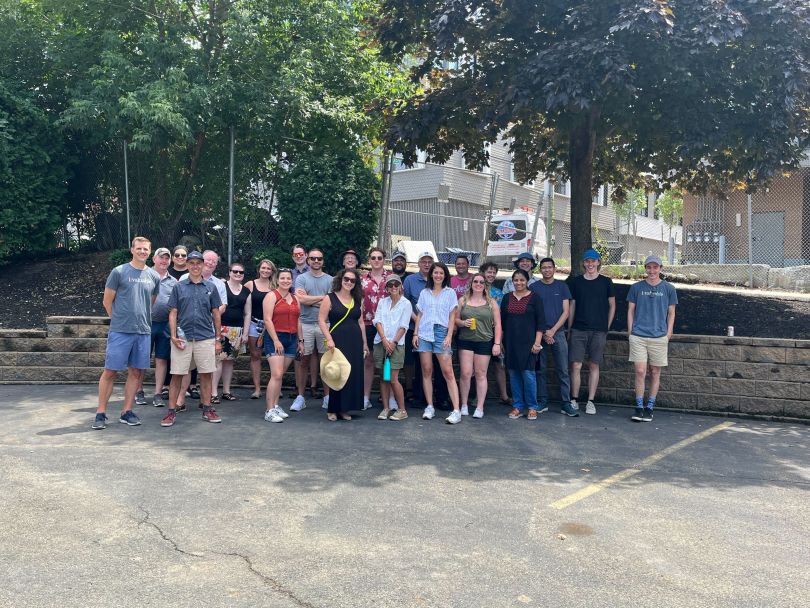
Caesar Naples, CTO, leads the Invaluable engineering team to be nimble in order to build a cohesive suite of products.
What trait, quality or value makes your engineering team successful?
“Flexibility. Our engineering team is small (but growing!) and mighty. We have multiple products, and our expanding customer base relies on these products to run their businesses. This means engineers get to wear multiple hats and contribute in many ways.”
How has your team worked together to solve a problem or overcome an obstacle?
“A few quarters ago a vulnerability in a widely used open-source library came to light. With this public disclosure came a lot of urgency to respond. The team came together quickly, and organically, to determine the best course of action, and implement it. A crisis can bring out the best (or worst) in a team, and I couldn’t be more impressed with their response.”
What is your team’s biggest accomplishment?
“Invaluable offers its clients multiple products to manage different parts of their business. Components of this portfolio have been added both organically (built in-house) and through acquisition. The teams working on these products have united to provide a seamless suite of products that work together to deliver incredible value and ease-of-use for our customers. And our biggest accomplishments are yet to come! Growing our team will allow us to tackle challenges of usability and scalability, while continuing to add more functionality and value to our customers.”
In what cities are you currently hiring for tech roles?
“We are a remote first and global team, with our largest co-location of engineering team members in the greater Boston area. We are currently growing our product and engineering teams domestically in the U.S. so candidates can live anywhere in the U.S. and come work for us.”


